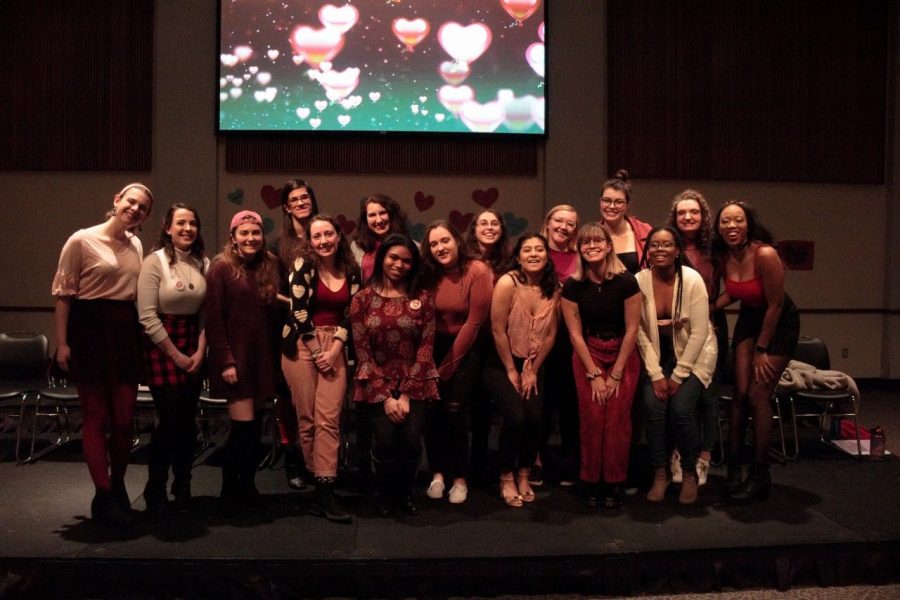Presented by Mosaic: A Womxn of Color Initiative, an organization developed to include and support the voices of women of color at Loyola, The Vagina Monologues was performed in McGuire Hall on Feb. 13 and 14. The play tackled the uncomfortability of discussing the female body and pushed past the taboos surrounding words like “vagina,” working to normalize this language rather than suppress its usage.
Unlike most traditional productions, The Vagina Monologues did not require auditions to be a member of the cast. “We told everyone to just come if they were interested because we wanted to give people who don’t usually have a chance to do any public speaking the opportunity to empower themselves,” said Caitlin Dwinnell ‘20, co-director of The Vagina Monologues. Reaching far beyond Loyola’s theatre department, this production, showcased annually, amplifies the voices of women from all different backgrounds and interests.
The show, written by Eve Ensler and first performed in 1996, was considered very radical in its earliest stages. As the play was performed throughout a gradually progressing society, however, many critics of the production began recognizing its downfalls. Most specifically, the original script of The Vagina Monologues catered mainly to white women and emphasized the gender binary, leaving out the important conversations surrounding non-binary identification and women of color.
Mosaic’s production, however, highlighted the importance of bringing these conversations to the stage and shined a light on the realities of those voices that were lost in the original scripting. “This is a very inclusive show, and it does take into account all different sorts of women from socioeconomic backgrounds and races and religions. I think that that’s really important, too, to bring to a predominantly white institution,” said Madeline Crowell ‘19, a cast member involved in the show. With Mosaic at the forefront of this project, Loyola’s production of The Vagina Monologues celebrated all women, regardless of race or identification.
Ensler’s play touches upon each aspect and stage of womanhood. From childhood to romantic relationships, the show emphasizes the struggles that come with learning to accept the female body in a society that stigmatizes and censors it. Often performed on college campuses, the show feels liberating to some and strikes others with uneasiness.
“We don’t need those outside voices with stigma and negativity coming into our space where we feel we’re sharing with our community,” said Dawn Elizabeth Rice ‘21, co-director and producer of The Vagina Monologues and chair member of Mosaic. “And it doesn’t matter if they don’t like it or if they don’t accept it because it’s here, and it’s going to stay. It’s going to come back.”
Mosaic’s presentation of The Vagina Monologues brought feelings of confidence, positivity, and power to those viewing and performing in the production. In doing so, Mosaic not only succeeded in crafting an inclusive show that is representative of the experiences of all women but was also able to amplify the voices of all involved.
Feature Image: Courtesy of Frances Almodovar ’21.



















































































































